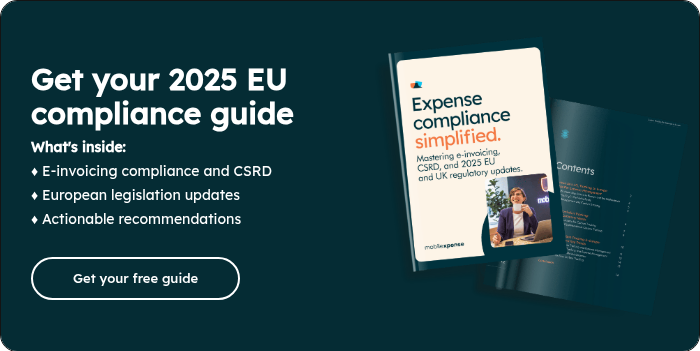VAT Rates, Daily and Mileage Allowances and Paperless in Romania
VAT rates in Romania
Romania imposes Value Added Tax (VAT) at different rates as follows for various goods and services:
1. Standard rate - 21%
The standard VAT rate in Romania is applicable to all taxable goods and services, except when a specific measure allows for a reduced rate.
2. Reduced rate - 11%
Foodstuffs; pharmaceutical products; medical equipment for disabled persons; hotel accommodation; water supplies; some beer; soft drinks; cut flowers and plants for food production; some agricultural supplies; some goods and services for consumption on-board transportation; books (excluding e-books); newspapers and periodicals; admission to cultural events; admission to sporting events; hotel accommodation; restaurants and catering services (excluding some alcoholic beverages); take-away food; bars, cafes and nightclubs (excluding some alcoholic beverages).
3. Zero rate - 0%
Intra-community and international passenger transport.
Source: https://legislatie.just.ro/Public/DetaliiDocumentAfis/275745
Daily allowances in Romania
Domestic per diem
In the country, 2,5 times the legal level established for the indemnity by Government decision, within the limit of three basic salaries corresponding to the job of the employee receiving the indemnity (2,5* RON 23,00 as of April 1st 2023)
Foreign per diem
Abroad, 2,5 times the legal level established for the daily allowance by Government decision, within the limit of three basic salaries corresponding to the job of the employee receiving the allowance.
For time periods not totalling 24 hours, the daily allowance is granted as follows:
- 50% up to 12 hours and
- 100% for the period exceeding 12 hours.
Travel time calculation:
- Time of take-off/landing of the aircraft
- Moment of crossing the domestic border points by train or car, both on departure abroad and on return to the country.
No meal deductions.
Sources: https://static.anaf.ro/static/10/Anaf/legislatie/OMF_1235_2023.pdf
https://static.anaf.ro/static/10/Anaf/legislatie/HG_582_2015.pdf
Mileage allowances in Romania
If an employee uses a company car, all fuel and associated maintenance costs are 100% tax-deductible for the company, provided detailed travel logs are kept, showing the routes and business purpose. If the car is also used for personal purposes, deductibility of expenses and VAT is limited to 50%.
If an employee uses their personal car for business purposes, the company can reimburse fuel costs and potentially other related expenses (e.g., parking, tolls).
-
The reimbursement is based on actual fuel consumption (justified by fuel receipts with the company's VAT code) and the distance traveled (documented in a decont de transport and potentially a travel log).
-
The deductibility of fuel expenses is typically 50% for the company if the car is personal, even if used for business.
-
If the reimbursement is a fixed amount without proper justification (receipts, decont), it will be considered taxable income for the employee and subject to all social contributions and income tax.
Costs for public transport (train, bus, plane tickets) are typically reimbursed in full based on supporting documents (tickets, invoices). These are generally 100% deductible for the company.
Source: https://legislatie.just.ro/Public/DetaliiDocument/128647
E-archiving and retention period in Romania
Scanned images are converted into standard digital formats, such as PDF (Portable Document Format) or TIFF.
Digital documents are stored on internal servers or, increasingly frequently, in cloud computing solutions. These offer redundancy, scalability, and remote accessibility.
Electronic archiving solutions must comply with legal requirements regarding the integrity, authenticity, and long-term availability of documents, such as the National Archives Law and tax legislation.
The archiving of the financial accounting documents based on which the VAT statements were prepared, as well as the VAT statements, shall be ensured for a period of 10 years (or equal with the useful life in case of immovable capital goods).
Source: https://legislatie.just.ro/Public/DetaliiDocument/82217

Share this
Looking for more?
Explore our recent blog posts

5 Signs You Need an Alternative to Bank Cards for Expenses

Per Diem Rates Table 2026 for Germany and International Travel
/Listing%20Images/The%20rise%20of%20AI%20+%20ML_Listing%20Image.png)
8 Key Things to Consider Before Adopting an Expense Solution in 2026
/Listing%20Images/Higher%20Tax-Free%20Mileage%20Allowance%20From%202023%20in%20the%20Netherlands%20%E2%80%93%201.png)

